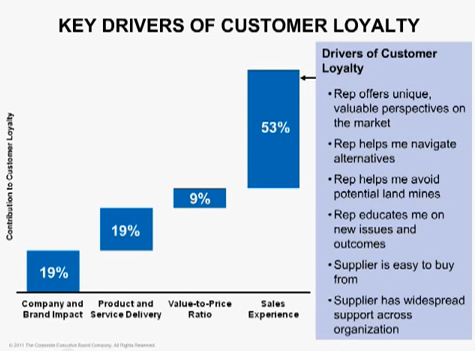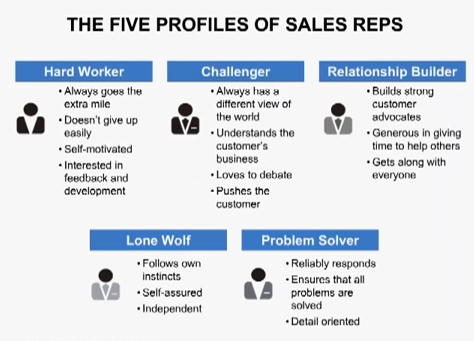What Your Buyers Really Want From Your Sales Reps

Matt Dixon
You’ve seen the statistics. You know that your customers complete nearly 60 percent of the buying decision before they call you. It’s no secret that your buyers use the Internet to educate themselves like never before.
So, how does this change your sales approach?
Matt Dixon, co-author of “The Challenger Sale,” has researched B2B buying behaviors to answer the billion-dollar question:
In a world of abundant information where customers can learn on their own, what do they really expect from sales reps?
The answer may surprise you. Dixon shared eye-opening insights during his session at the Inside Sales Virtual Summit. You can watch his presentation in the video below.
How to win over today’s smart buyers
Today’s savvy B2B buyers use a sophisticated process to prescreen suppliers. It looks something like this:
-
They identify the business problem they want to solve
-
They research solutions and create a short list of top candidates
-
They collect pricing information on you and your competitors (even if it’s not publicly available)
So, when they finally call you, they don’t really want to hear about features or benefits. In their minds, the only thing that’s left to discuss is price.
Dixon’s team at the Corporate Executive Board asked B2B buyers what separated their No. 1 choice — the company they actually did business with — from their second choice. At the end of the survey, they asked the buyers how loyal they were to the suppliers they chose.
This chart represents his findings:

Traditional thinking assumes that all of the stuff on the left-hand side of the chart is what makes customers loyal.
-
Brand reputation
-
Do we make a good product?
-
Do we back it up with great customer service?
-
Is the product or service we deliver priced fairly in the market?
And truthfully, those things all matter. But in the world of today’s empowered customer, those things are table stakes.
More than half of the loyalty equation revolves around the sales experience.
Today’s buyers expect a specific kind of sales experience. It requires a sales conversation where the rep provides a unique and valuable perspective. The rep helps the customer navigate through alternatives and landmines. In a nutshell, your reps must bring new ideas to the table.
Your sales reps should provide new ideas that help buyers:
-
Save money
-
Make money
-
Avoid risk
-
Engage employees
-
Steal market share
What customers really want is the unique idea — the thing they couldn’t learn on their own. More than half of what drives customer loyalty is determined by how you sell it, not what you sell.
What kind of salespeople succeed?
Dixon’s team launched a global study that categorized salespeople and measured their performance. He found five standard sales profiles.

Which of these reps do you think has the highest success rate?
Dixon’s data show that challengers are most likely to be top performers, and relationship builders are least likely to be top performers.
Here’s why challengers outsell their peers:
-
They teach the customer something new
-
They tailor the message to the buyer
-
They take control of the conversation
Dixon says a good challenger conversation gets the customer to think differently. It makes the customer say, “Huh, I never thought about it that way before.” You might even hear, “I don’t buy it. Prove it. Back it up with data.”
The conversation might generate some skepticism — some pushback from the customer. And that’s a good thing because it means the customer is intellectually engaged. Your buyer wants to learn more. That’s where you want to be.
Some of Dixon’s findings may have caused a stir in the sales world, but he has the data to back them up. For more insights from his groundbreaking research, check out his bestselling book, “The Challenger Sale.”


